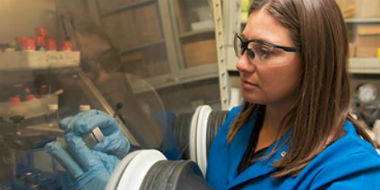Smarter Planet
How Necessity Is Driving Invention, a TED@IBM Talk
October 2, 2015 | Written by: Mike Zimmerman
Categorized: Smarter Planet
Share this post:
By Deepak Advani
What is it that separates homo sapiens from our fellow animals? Psychologists, anthropologists, artists, zoologists and many other “ists” have proposed many different ideas, but as they have not reached a consensus, I feel free to offer my own opinion: it is invention that sets humans apart.
“Language” is a popular proposal yet what is human language (not the capacity for language, but language itself) if not an invention? Other animals use tools, but it is humans alone who relentlessly imagine, improvise, tinker and create a seemingly infinite number of things to help us with every aspect of our lives.
Our species has reached the point where thousands of us have the leisure to invent for the pure pleasure of it, as an imaginative act not to tied to filling any need. Our inventive spirit, however, rose out of necessity. Stone tools, cooking, shelter all facilitated meeting a basic requirement for survival. That same spirit lives – thrives – in us today, and is the key to the salvation of our species and many others (though cockroaches might fare just fine without our help).
Invention has gotten us to where we are today. Human civilization is the sum product of all of our inventions – for better or worse, some might say, but I would argue that it’s been overwhelmingly for the better. Who among us would prefer to live in a world without cell phones, the internet, cars, vaccines or even paper? And yet, inventions do not come without consequences. Environmental degradation comes immediately to mind, but also consider advancements that compromise our privacy, or perhaps ones that help us live longer, thereby putting added pressures on our resources through larger populations.
Without downplaying the problems of any individual society nor the global challenges of and by our society as a whole, I remain in awe of the human inventive spirit and a firm believer in its ability to solve any problem we face. This is in no small part due to people such as those speaking at TED@IBM 2015 on our theme of Necessity and Invention.
Take Vinith Misra, a Watson computer scientist who is studying how to make our machines more relatable and personable through humor – with implications for how we might, for example, help children with disabilities develop language and communication skills.
In Kenya and other developing countries, researcher Dr. Kara Fleming is applying the latest in technology to one of our most fundamental needs. Dr. Fleming and her team of scientists at IBM Research – Africa are using Watson cognitive computing to map and analyze the status of underground water supplies so that communities dependent upon water boreholes can anticipate and plan for droughts and other emergencies.
The ability to predict those droughts and other notoriously capricious weather phenomena with much greater accuracy could soon be within our grasp thanks to the work of people like IBM researcher Lloyd Treinish. By combining advances in physics, modeling and observation, Treinish believes we can both save lives and improve industries affected by weather.
These and other dreamers are working to meet the necessities of today and tomorrow, including challenges many of us might not even be aware of yet. They do so out of an inherent optimism and with the goal of creating a better world.
I hope that you will be able to join us for TED@IBM 2015 on October 15 in San Francisco, either in person or via the live stream. Follow us before, during and after at #TEDatIBM, and please be sure to let us know what you think the most pressing issues are or will be, and how we might address them as individuals and together as a society.
How An Accidental Discovery Led to a New, Highly Recyclable Plastic
Sunday marked the 48th annual celebration of Earth Day, the global event that celebrates the importance of environmental protection. This year, the Earth Day Network’s focus is to, “fundamentally changing human attitude and behavior about plastics and catalyzing a significant reduction in plastic pollution.” IBM, Polymer Chemist, Jamie Garcia, is doing more than her fair share […]
The Rise of Cognitive Business
By John E. Kelly III When the original Watson won on the TV quiz show Jeopardy in 2011, it was one computer tucked away in a room at IBM Research. Now it’s in our cloud, available anywhere. Back then, Watson consisted of a single software application powered by five core technologies. Today, it includes 28 […]
How Necessity Is Driving Invention, a TED@IBM Talk
By Deepak Advani What is it that separates homo sapiens from our fellow animals? Psychologists, anthropologists, artists, zoologists and many other “ists” have proposed many different ideas, but as they have not reached a consensus, I feel free to offer my own opinion: it is invention that sets humans apart. “Language” is a popular proposal […]


